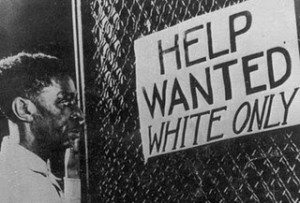Under the at will employment law system in the United States, employers can fire workers for any reason or for no specific reason. However, employees do have some protections. Members of minority classes have been extended special protections by civil rights laws, which ensure that these workers are not discriminated against illegally. 
Both federal and state laws protect employees from on-the-job discrimination. Employers need to be aware of the laws and abide by them to avoid a costly lawsuit. Employees also need to know their rights so they can take legal action if they are treated inappropriately.
An experienced San Diego employment litigation lawyer at Sepahi Law Group, APC should be consulted for help understanding the laws associated with workplace discrimination. Employers and employees can both benefit from sound legal advice, so call today to schedule a consultation and learn more about how an attorney can help.
Protections from On-the-Job Discrimination
Federal laws provide protections from many different kinds of on-the-job discrimination. These laws include:
- Title VII of the Civil Rights Act of 1964: Prohibits discrimination on the basis of gender, race, religion, color or national origin. Sexual harassment is also prohibited as a form of gender discrimination under Title VII of the Civil Rights Act.
- The Equal Pay Act: Guarantees equal pay for equal work and prohibits employers from paying women less than men in the same job.
- The Lilly Ledbetter Fair Pay Act: Makes it easier for fair pay lawsuits to be filed by establishing that the statute of limitations for filing a lawsuit begins anew with each paycheck affected by discrimination.
- The Americans with Disabilities Act: Prohibits employers from discriminating against workers who are disabled, and requires reasonable accommodations to make it possible for an otherwise qualified disabled worker to do a particular job.
- The Age Discrimination in Employment Act: Prohibits employers from discriminating against workers aged 40 and older.
The federal government does not have national protections in place for homosexual or transgendered workers. The state of California, however, does protect gays, lesbians, bisexual individuals and transgendered individuals from workplace discrimination on the basis of their sexual orientation or their gender identity.
Types of Prohibited On-the-Job Discrimination
There are many different types of prohibited on-the-job discrimination. Employers may not consider an employee’s age, race, gender, religion, national origin, gender identity, sexual preferences, color or disability status in relation to:
- Hiring the employee
- Firing the employee
- Promotional opportunities
- Employee benefits
- Any terms and conditions of employment
In addition to overt discrimination, such as a refusal to hire someone who is gay or who is hispanic, employers can also be held responsible for disparate impact discrimination. This occurs when an employment requirement or job test ends up disqualifying workers in a protected class in greater numbers. Unless the job test has a bona fide relationship to occupational requirements, an employer can be legally liable for disparate impact discrimination.
Finally, employers are also responsible if any workers create a hostile work environment on the basis of someone’s protected status, unless the employer has a clear grievance procedure in place and acts to stop abusive or harassing behavior when it is reported.
Employers and employees should consult with a San Diego employment law profession about on-the-job discrimination issues. Call Sepahi Law Group, APC today for help.

